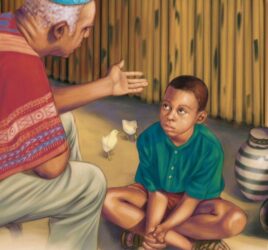If you have not read John Piper’s Brothers, We Are Not Professionals, let me encourage you to get a copy and to read it. It is thought-provoking, ministry-enlightening, and can change your view of ministry and church. His appeal is to focus not on professionalism but on spiritual matters, on God changing our hearts, burdening them for souls, and empowering us for real spiritual ministry. Churches are not dead organizations but living organisms, and it is the life of God, and not the professionalism of the pastor, that must be at the center of the church.
Several years ago, I was with a group of about thirty IC pastors who met in Switzerland with Pastor and Author Gordon MacDonald. He led us through a study of Exodus 33:12-23, where Moses asked to have the presence of God, to know the ways of God, and to see the glory of God. MacDonald called these “The Greater Curiosities.” He pointed out that there are some other helpful things to know in pastoring churches, how to do budgets, how to supervise the staff, etc., but he called these practical matters “The Lesser Curiosities.” The greater needs of every pastor transcend the “professional matters,” and deal with God and the inner life of the pastor.
The tendency to make us professional, rather than spiritual, seems to be everywhere in churches and in ministries. One of the realities of Pastoral Care and Counseling, as the subject is taught in most seminaries, is that it tends to focus on making the pastor a professional counselor and care-giver, and sometimes he develops into “The Care Giver” of the church, to the exclusion of all others in the church.
Gratefully, this tendency to put the pastor on this professional pedestal is somewhat generational, and the younger generations see leadership differently. The older generations still want the pastor to visit them in the hospital, to pray for them (a “professional” prayer?), and to advise them on their personal problems. But the younger generations today, while they respect the pastor, see him as an equipper of others, and not just the one who does it all “properly.” And this is actually closer to the biblical teachings, “to equip the saints for the work of the ministry” (Ephesians 4:12).
There is a world-wide growing trend today to take all leaders off the pedestals upon which they have stood for centuries. In pastoral care and counseling, in ICs this will mean more training and delegation of responsibilities. But there are several inherent dangers in this: some people may give bad advice, some might introduce false teachings, some will cause division in the church, some will gossip, some will not be responsible, etc. The solution is for the leaders to model proper care, to train, as well as to delegate and hold the trainees accountable.
In ICs another area of concern is the reality of multiculturalism. An excellent research paper out of Ghana, Africa, (Emmanuel Lartey, PhD, Pastoral Counseling in Multi-cultural Contexts) pointed out two false ways of handling counseling needs in a multi-cultural context: “We’re all the same,” and “We’re all different.” He saw both of these perspectives as partial truths passed off as absolutes. The first, “we’re all the same,” is inadequate, ignoring real cultural differences. The second, “we’re all different,” accepts cultural differences but does not allow for common ground.
Dr Lartey advised a better way is to understand everyone in three ways: (a) Everybody is like everyone else in some ways – that is, we all share some common human realities; (b) Everybody is like some people in some ways – that is, the people of his own culture; and (c) Everybody is like nobody else in some ways – that is, we’re each unique individuals. The IC pastor needs to understand this threefold identity that each of us have, and to train others in his church to grasp and to respect this reality.
Several factors, ranging from loneliness, homesickness, language issues, and just plain curiosity, draw people of different cultures into the same church. But the greatest drawer and unifier of people from different nations is the love of God in Christ Jesus. It is the love of God, the preaching of Jesus Christ, crucified, risen and coming again, and the presence of His Spirit among us, that bring people to Christ and build healthy church bodies.
So, here are three responsibilities for the IC Pastor of today:
- Walk daily in the life of the Lord Jesus, in His Word, and in the presence of the Spirit. Be spiritual more than professional.
- While you care, teach, and counsel, train and equip others in the church to also do important ministries. Some serious situations will always need to be handled by the pastor, but many others may be handled effectively by others in the church. Model and serve as an example, and do not just control others (1 Peter 5:3).
- Train others to appreciate the common life we all share in Christ, while respecting cultural differences and individual uniqueness.
David Packer
MICN Pastor Care



